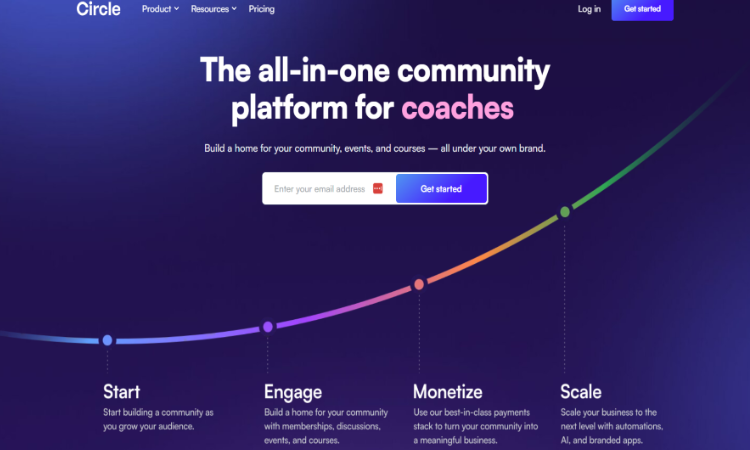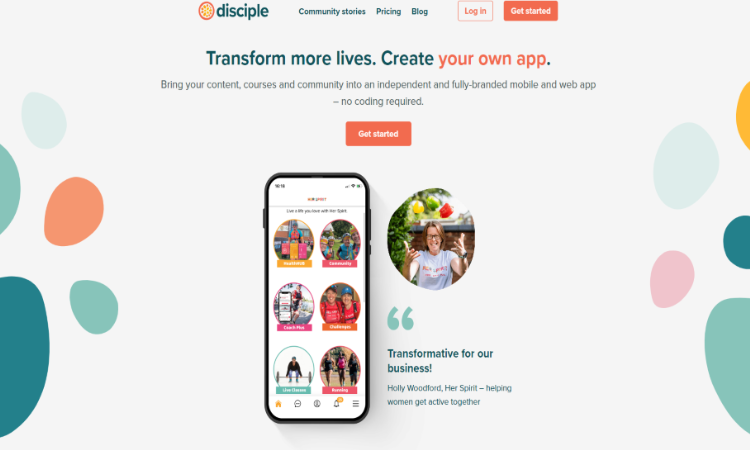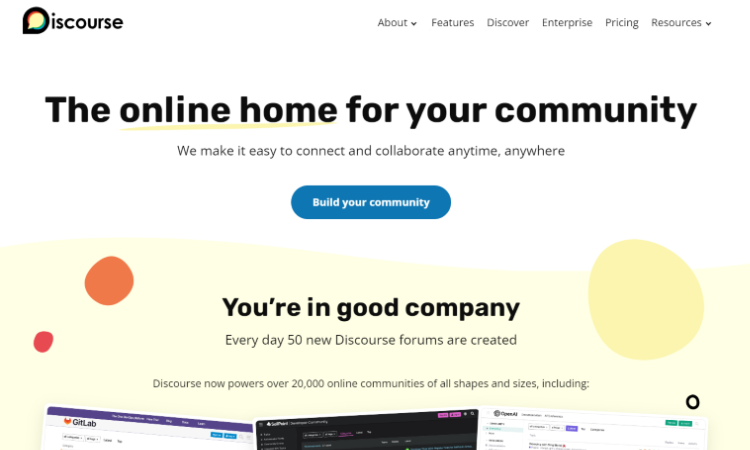

In today’s digital landscape, online communities have become essential for businesses, educational institutions, and organizations looking to connect with their audience. While Hivebrite has been a popular choice for many, there’s a growing demand for alternatives that offer different features, pricing models, or user experiences. Whether you’re a course creator, coach, or educational content developer, finding the right platform to build and nurture your community is crucial.
Before diving into the alternatives, it’s important to understand why you might be considering a switch from Hivebrite:
Pricing Concerns – Hivebrite’s pricing structure may not align with every organization’s budget, especially for smaller communities or startups. Some find that as their community grows, the costs can escalate quickly, making it less sustainable in the long run.
Feature Limitations – While Hivebrite offers a robust set of features, you may find that it lacks specific functionalities crucial to your community’s needs. For example, if you’re focused on course delivery or need advanced e-commerce capabilities, you might find Hivebrite’s offerings in these areas limited.
Scalability – As your community grows, you might need a platform that offers more flexibility in terms of user management and engagement tools. Some users report that Hivebrite can become cumbersome to manage at scale, which can make building a sustainable community difficult.
The #1 to make money online with TikTok Search (FREE TRAINING)

User Experience – Some users find Hivebrite’s interface complex, leading them to seek simpler, more intuitive alternatives. This is particularly important if your community members are not tech-savvy.
Integration Capabilities – Your existing tech stack may require a platform with different integration options than what Hivebrite provides. Seamless integration with your current tools can significantly improve workflow efficiency.
Customization – You might be looking for more control over the look and feel of your community platform. While Hivebrite offers some customization options, they may not be sufficient for brands wanting a highly unique community experience.
Support and Resources – The level of customer support and available resources for learning and troubleshooting can vary between platforms. If you’re looking for more hands-on support or a larger knowledge base, you might want to consider alternatives.
Mobile Experience – In an increasingly mobile-first world, the quality of the mobile experience for your community members is crucial. Some users find Hivebrite’s mobile offerings lacking compared to alternatives.
Let’s explore some alternatives that address these concerns and offer unique benefits for community builders.

Teach.io is an all-in-one platform designed specifically for course creators, coaches, and educational content developers. It offers a unique blend of community-building tools, course creation capabilities, and monetization features, making it an excellent choice for those looking to build and grow an education-focused community.
Ideal For: Educational creators and coaches looking for a streamlined platform to build, engage, and monetize their online communities. Teach.io is particularly well-suited for those who want to combine course delivery with community engagement in a single, easy-to-use platform.
Try Teach’s 14-day free trial now.

Mighty Networks is a popular choice for creators and entrepreneurs looking to build branded communities, courses, and membership sites. This Hivebrite alternative offers a good set of features that cater to a wide range of community types.
Ideal For: Organizations looking for a platform to build a thriving online community with courses and memberships. Mighty Networks is particularly well-suited for creators who want to offer a mix of free and paid content within a single ecosystem.

Circle.so specializes in creating paid communities and membership sites, empowering creators to monetize their expertise. It’s known for its clean, intuitive interface and focus on fostering meaningful interactions.
Ideal For: Creators, coaches, and experts who want to build a paid community around their knowledge and expertise. Circle.so is particularly effective for those looking to create exclusive, high-value spaces for their audience with one of Hivebrite’s competitors.

Disciple is a community platform that emphasizes owned community spaces, giving organizations full control over their branding and data. It’s unique in its focus on creating branded mobile apps for communities.
Ideal For: Organizations that prioritize owning their community data and want a fully branded experience, especially on mobile devices. Disciple is particularly well-suited for established brands or creators with a significant following who want to offer a premium community experience.

Bettermode is known for its flexibility and customization options, allowing organizations to tailor the platform to their unique branding and community structure. It offers a good balance between ease of use and powerful features.
Ideal For: Organizations that want a highly customizable community platform with a focus on engagement and growth. Bettermode is particularly effective for businesses looking to integrate community features seamlessly into their existing digital ecosystem.

Higher Logic Vanilla is an enhanced version of the open-source Vanilla Forums, offering additional features and scalability for larger communities. It’s designed to handle high-volume discussions and complex community structures.
Ideal For: Larger organizations with complex community needs seeking a scalable platform with comprehensive analytics and support. Higher Logic Vanilla is particularly well-suited for enterprise-level businesses, large associations, or any organization managing high-volume discussions.
For those working with limited budgets or just starting out, these free alternatives can provide a solid foundation for building your online community. While they may not offer all the bells and whistles of paid platforms, they can be excellent starting points for testing community concepts or for organizations with basic needs.

Open Social is an open-source community platform built on Drupal, offering a range of features for creating and managing online communities. It’s a popular choice for organizations that value flexibility and have some technical resources at their disposal.
The #1 to make money online with TikTok Search (FREE TRAINING)

Ideal For: Organizations with Drupal expertise looking for a flexible and customizable community platform without upfront costs. It’s particularly well-suited for non-profits, educational institutions, and government organizations that have technical resources and prefer open-source solutions.

Vanilla Forums offers a free, open-source version of their popular community platform, focusing on discussion forums and knowledge sharing. It’s a great option for organizations that prioritize community discussions and don’t need extensive additional features.
Ideal For: Organizations seeking a straightforward platform for fostering discussions and knowledge sharing without a financial commitment. It’s particularly suitable for tech-savvy users who are comfortable with self-hosting and basic customizations.

Discourse is a popular open-source discussion platform that can be used to create vibrant online communities. It’s known for its modern design and focus on creating meaningful, organized discussions.
Ideal For: Tech-savvy users looking for a powerful, free community platform with advanced features. Discourse is particularly well-suited for organizations that value in-depth discussions, such as support forums, professional networks, or fan communities.
As the digital landscape continues to evolve, the need for robust, flexible community platforms grows. While Hivebrite has been a popular choice, these alternatives offer a range of features and pricing options to suit various needs and budgets.
From free, open-source solutions like Open Social and Vanilla Forums to comprehensive paid platforms like Teach.io and Mighty Networks, there’s an option for every type of community builder. Whether you’re a course creator, coach, or educational content developer, taking the time to explore these alternatives can lead you to a platform that meets your current needs and supports your community’s future growth.
Remember, the success of your online community doesn’t just depend on the platform you choose – it’s about how you engage with your members, create valuable content, and develop meaningful connections. Choose a platform that aligns with your vision and empowers you to create the thriving community you’ve always envisioned.
Ready to take the next step in building your online community? Start your 14-day free trial with Teach.io today and experience the power of a platform designed with educators and community builders in mind. Join thousands of successful creators who have found their perfect community home with Teach.io.





